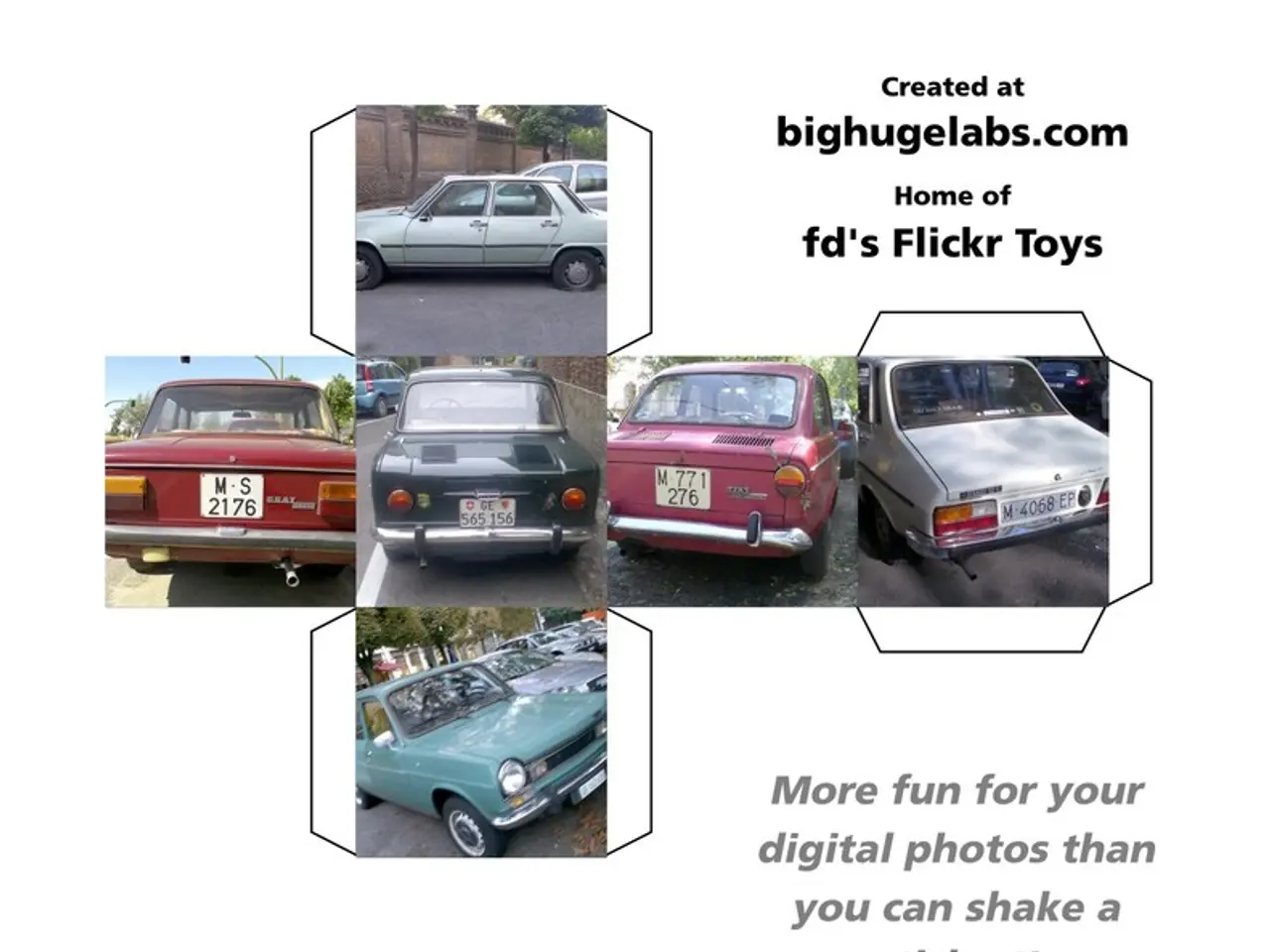Auto sector in Europe faces turbulence as Tesla persists in shedding market dominance
In the rapidly evolving electric vehicle (EV) market, Tesla is facing challenges in Europe. The American automaker's market share in the continent has been on a downward trend, primarily due to strong competition, aging product lineup, supply disruptions, and reputational issues linked to CEO Elon Musk.
One of the key contributing factors is the intense competition from European and Chinese automakers. Brands like BYD, Volkswagen (VW), and others have launched newer and often more affordable EV models, capturing consumer interest. BYD’s sales, for example, tripled in Germany in June 2025, reflecting a shift in preference towards newer designs and competitive prices that challenge Tesla’s older Model 3 and Model Y lineups.
Tesla’s product refresh has not driven the expected sales growth. The updated Model Y, including versions manufactured in Berlin and China, has failed to significantly boost sales. While the Model Y remains the best-selling battery electric vehicle (BEV) in Europe, its sales volumes have stabilized only recently after a sharp drop earlier in 2025, and overall Tesla sales contracted 33% in the first half of 2025 despite BEV sales growing by 25% in Europe over the same period.
Production and supply disruptions have also affected Tesla's performance. The company's production retooling for the refreshed Model Y has caused supply interruptions, affecting availability in key markets like Germany, France, Sweden, Denmark, and Italy where Tesla sales have fallen consistently over six months.
Reputational issues tied to CEO Elon Musk have also played a role in Tesla’s declining market share. Controversial political activities and public actions by Musk have alienated some European consumers, damaging Tesla’s brand appeal even though the vehicles retain technological advantages such as over-the-air updates and Full Self-Driving features. Analysts consider this brand damage a non-trivial factor in Tesla’s declining market share.
Contrasting regional performance is another factor. While Tesla struggles in central and northern Europe (e.g., sales dropped 60% in Germany, 64% in Sweden), it has seen some bounce-back in markets like Norway and Spain where the overall EV market is surging.
In an attempt to boost sales, Tesla has started production of a cheaper car, initially planned for the first half of 2025. However, this production has ramped up slower than expected due to the focus on building and delivering as many vehicles as possible before the tax credit expires. The cost of a new Tesla is expected to increase substantially on October 1.
Tesla may not be able to fulfill all orders from customers before the federal tax credits expire on September 30. The company is encouraging customers to act now, as waiting could result in a higher cost for a new Tesla. Tesla has rolled out sales incentives to motivate buyers, but these incentives are not guaranteed to remain available.
Tesla is prioritizing the production of its current, more expensive models to maximize sales before the tax credit disappears, delaying the rollout of a more affordable car. Any talk of a less expensive Model 2 has now faded, as Elon Musk appears to be focusing on other priorities.
The decline in Tesla's sales in Europe may be due to an increase in the number of electric car models available, many from Chinese manufacturers. Tesla's market share in Europe, including the European Union, Britain, and the European Free Trade Association, fell to 2.8% in June, a decrease from 3.4% in the same month the previous year. Tesla's sales are expected to continue to struggle across Europe, growing more slowly than the overall electric vehicle market.
Tesla's chief financial officer, Vaibhav Taneja, warned that the company has limited supply of vehicles in the U.S this quarter. These challenges underscore the intensifying competition in the EV market and Tesla's need to adapt and innovate to maintain its leadership position.
[1] Tesla's Market Share in Europe Falls Amid Growing Competition [2] Tesla Faces Mounting Challenges in Europe [3] Norway's EV Sales Surge Despite Fall in Tesla's Market Share [4] Tesla's Model Y Sales Stagnate Despite Updates
- In an effort to counteract the growing competition from European and Chinese automakers, Tesla launched a newsletter highlighting the technological advantages of its vehicles, such as over-the-air updates and Full Self-Driving features, while also detailing recent policy changes that could benefit potential EV buyers.
- Amid the newsletter, Tesla announced the release of a new podcast featuring industry experts discussing the impact of technology on sports, exploration, and sustainability, aiming to resonate with a broader audience and potentially bolster its market share in Europe.




